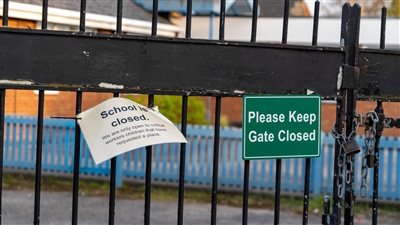Lockdown has caused a `shocking` decline in primary children`s abilities

The Corona virus pandemic has affected every part of society - but the education sector may well prove to be the hardest hit. When all this disruption is over, when we are far enough away from this intractable, invisible blight, to be able to assess the damage done from a vantage point of safety, we might discover school children and their education have been the most impacted.
Missing 6 months of schooling may well prove to be an impediment some pupils can never fully recover from. Of course there has been remote learning, with teachers sending lessons and marking assignments, along with web courses designed to keep the children on the curriculum - but there is really no substitute to going to school, mixing with your peers, and learning from a teacher in a classroom. Thousands of adults have been discovering just how difficult it is to work from home, and hard it is to become motivated without the roving presence of a manager, and the invigorating presence of their colleagues. If adults have found it hard to adjust to a new work environment, how much more difficult must it have been for children?
A recent study carried out Hodder Education has provided the first detailed investigation into the effect of the pandemic on schoolchildren. The major finding has been an average decline in academic performance of between 5% and 15% compared to the previous year. While all subjects have been negatively affected, mathematics appears to be the domain suffering the greatest drop in ability.
Though it`s inevitable that the closure of the schools will have disrupted pupils` learning, many been surprised at just how severe the deterioration has been. Dr Timo Hannay, who works for the education data analytics company SchoolDash, and interpreted the results of the study, has expressed his dismay at the level of decline.
`Purely statistically speaking, it`s a massive drop. We could have expected something like this. But it`s absolutely shocking in terms of its size.`
The study was certainly more than a small assessment, whose results could have been explained as an anomaly due to a small sample size - more than a million pupils have taken part, sitting standardised tests at the beginning of this term. These are tests routinely carried out every year, primarily in order to track pupils` progress in maths and english. The most recent set of examinations were scheduled to be taken in the summer term, but were cancelled because of the lockdown. Being sat just after pupils returned to school has given researchers at RS Assessment from Hodder Education a disquieting glimpse into the effect of school closures.
The results have shown that seven year olds have been most negatively affected, and disadvantaged students, including those who are eligible for additional premium pupil funds, and are entitled for free school meals, have suffered the greatest academic decline. Areas in the north of England, particularly the Midlands have seen some of the biggest drops.
The assessment provided a detailed breakdown of the decline in certain subjects, citing an 11% reduction in vocabulary across all age groups, with spelling results down 10%. Pupils in year one have also suffered a `concerning` achievement drop, suffering a fall in 16% for phonics, a 14% drop in `reading for meaning,` and a decline in comprehension scores of 15%.
Katie Blainey, who holds the title of publishing director at RS Assessment, has expressed how important it is to understand what lockdown has done to children`s education
`This year, more than ever, it is important we use every resource we have to quickly understand what impact school closures may have had on attainment across the country.
`By providing this detailed analysis of primary test results from the first six weeks of the autumn term, we hope to provide evidence to help focus support to help those children most affected by the closures.`
`There have clearly been significant impacts on learning, but not all children have been affected equally, so we hope this analysis will help to work towards a fairer start in life for all pupils, regardless of background.`
The government has announced a 1 billion covid catch-up premium, with which it plans to offer financial assistance to schools across the country during the 2020 - 2021 academic year. I suspect help will be needed for some years to come, and the lasting damage to some children`s education may be felt for the rest of their lives.

 Add a Comment
Add a Comment